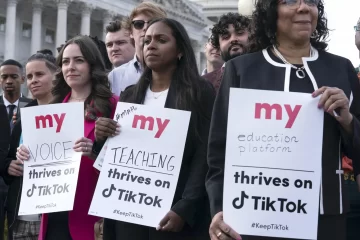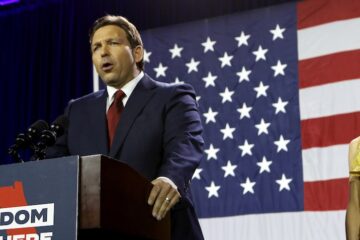AUTHOR: PAUL JEFFRIES; GLOBAL SCHOLAR AT AMERICAN UNIVERSITY (FOCUSING ON INTERNATIONAL POLITICAL ECONOMY); CURRENTLY STUDYING ABROAD AT SCIENCES PO PARIS
No! How anti-climactic, right? The next President of the United States is not going to kill free trade. I feel comfortable letting that conclusion slip early on because this article is not another piece of click-bait that sacrifices analytical honesty for sensationalism in an effort to profit off of the peculiar state of affairs that is the current US presidential race. Regrettably, most modern media seems to be dominated by commentators who would typify Archilochus’ “hedgehog,” leaving the “foxes” by the wayside, decrying the gross oversimplifications and fear-mongering that characterize far too much of today’s ratings-hungry news media. I promise to not engage in such hedgehogery, but to argue as I do that this US presidential election is not the swan song of free trade is not to say that it is of no import to the future of international trade relations. The reality is that this election has already elucidated a discernable shift in the way in which the US populace conceives of trade—as Paul Krugman and others have explicated—and that ideological pivot could result in the election of a 44th US President that could potentially alter the status quo of international trade relations.
Free trade—a definitional rabbit hole—so let’s go rabbit hunting!
I was recently involved in an hour-long heated debate as to whether or not the US is promoting free trade, which only came to a conclusion once I identified that we were playing on different definitional playing fields: I was thinking of free trade technically—focusing on tariffs and subsidies—whereas my interlocutor was thinking philosophically, imagining a totally equal playing field between all economies worldwide. “Free trade” is a victim of its own vernacular popularity; it has been associated with a myriad of different political and economic philosophies; thus, many arguments over free trade quickly devolve into squabbles over Adam Smith and David Ricardo, or, worse yet, over poor caricatures of their beliefs. Pivoting towards a conversation about the various ideologies of international political economy is practically counterproductive when focusing on policy; if that interests you, however, I suggest starting with Gilpin’s seminal work. For our purposes, I suggest cutting right to the chase, and adopting a common definition of free trade: “the practice of removing restrictions on imports and exports between countries.” As can be seen, the definition itself implies that free trade is more processual than absolute, and the historical evidence vindicates this. As Gilbert Winham argues in his chapter in John Ravenhill’s global political economy textbook, the history of the global trade regime since the inception of the World Trade Organization (WTO) is one characterized by striving for a periodic reduction of barriers to trade. As the WTO has documented, this effort has largely succeeded, with successive rounds of negotiations throughout the years leading to an across-the-board reduction in trade barriers.
In recent years as the Doha Round of WTO negotiations has stagnated, an increase in bilateral and multilateral trade deals has continued to promote the spirit of free trade: that removing restrictions and increasing trade is beneficial to all. The US has seemingly marched forward as one of the chief flag-bearers of free trade, with the current Obama administration putting forth such projects as TPP and TTIP. With this historical perspective in mind, let us turn to the 2016 US presidential race, where one can quickly see that the status quo on free trade is shifting rapidly. Most bizarre of all, this change is a bipartisan issue, with both left and right appearing to run away from free trade as we know it.
The moribund free-trade doctrine of the Republican Party?
In my first international relations course as an undergraduate, we were taught the standard philosophical camps of IR, among which figured liberalism—often characterized by its support of free trade. The professor pointed out that (using American political terminology) it was typically conservatives who were most economically liberal. Differently put, there has been a recent historical tendency for the political right in the United States to be more avowedly in favor of free trade. This can be proven veridical on a variety of fronts, given that the major conservative think tanks have long advocated for free trade, and the Republican establishment—at least prior to Trump’s arrival—has long argued for free trade. That addendum—“at least prior to Trump’s arrival”—is a perfect summation of the truths revealed by this electoral cycle; whatever you think of the primary process, there is little denying now that Donald Trump is the presumptive Republican nominee, and by perusing his trade policy paper on China alone, one can see that he represents arguably the most protectionist Republican presidential candidate since Herbert Hoover.
Let us not forget how remarkable the change represented by Donald Trump’s trade policy truly is for the GOP; we have gone from Mitt Romney, who was torn apart by the Republican establishment for supposedly being hypocritically protectionist when it came to his views on China, but was otherwise a passionate free-trader, to Donald trump, who proudly brandishes his plan to utilize hefty tariffs to promote a nebulous concept he describes as “fair trade.” How the Republican Party was so suddenly hijacked by a proud protectionist is the subject of a large amount of current inquiry, but while the “how” will be disputed for years to come, Bob Riha of Reuters summarizes the current state of the GOP quite appositely: “a Trump nomination heralds the end of decades of Republican support for free trade.”
A reinvigorated protectionism in the Democratic Party?
In comparison to the changes taking place in the Republican Party as concerns beliefs on free trade, the philosophy of the Democratic Party may appear more inertial, but to conclude that nothing has changed on the left would be wrongheaded. While it currently appears to be highly improbable that Bernie Sanders will successfully wrestle the Democratic presidential nomination out of Hillary Clinton’s grasp, it does appear that his popularity and resilience in the race has pulled Clinton further left on various issues—including trade. Given the short-sightedness of the news cycle, we are quick to forget that Clinton once lauded the TPP as the “gold standard” of trade deals, but has long since switched her position, falling in line with Sanders’ rhetoric and objecting to the trade deal for a variety of reasons. Beyond the fact that Sanders has succeeded in prodding Clinton to oppose TPP, his own success is representative of a renewed protectionist leaning in the Democratic Party, regardless of the improbability of his winning the nomination. While to argue that Sanders’ success is due to trade qualms alone would be incorrect, it is clear that a large portion of his appeal is derived from a revival of pro-labor protectionism in the Democratic ranks.
“HUUUGGE” change on the horizon? — Probably not.
So, we have a Republican presidential candidate who is running on protectionist promises that are in direct opposition with his party’s historic promotion of free trade and a Democratic Party demonstrating revitalized protectionist vigor. How can I argue that the next US president won’t kill free trade? Well, most of my confidence is derived from the nature of the US political system itself, and the relative impotence of the US president to unilaterally alter trade policy. The US political system is one built to sacrifice speed and efficiency for the insurance of liberty. The bedrock of checks and balances that undergirds the American political apparatus is one that makes drastic pivots in policy quite difficult to execute, and requires consensus in order to move forward. While at times this leads to anger over political gridlock, it is that same tendency for political congestion that prevents radical shifts in trade policy.
Some might argue that the US President controls a great deal of power in determining national trade policy given the Trade Act of 1974, but one must remember that the trade promotion authority of the president is an impermanent power that will need to be re-authorized by Congress. Thus, while it is clear that both sides of the political spectrum in the US are seeming to turn away from free trade, as evidenced by the results of the presidential race, the actual power in determining trade policy remains with the Congress. It is also worth noting that the Republican Party still controls the Congress, and it appears that the congressional leadership are not going to whole-heartedly support Trump’s policies. Barring drastic changes, it would appear that the status quo will change little in the near future, probably resulting in more gridlock, but also a lower probability of a hasty remodeling of US trade policy.
So fear not free-traders! We are all well aware that this has been everything but a typical electoral cycle in the United States, but one should not let sensationalism trump the reality of the torpidity of the US political system when faced with potential change. It does appear that public sentiment is moving away from the belief that more trade is always better—regardless of what one may think of such a posit (another topic for another article)—but while the next US president will likely accomplish a great deal, killing free trade is not on that list.


